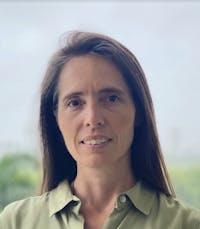Al Mubarak welcomes Indigenous leaders as partners at COP28
The Twenty-Second Session of the United Nations Permanent Forum on Indigenous Issues took place during the last two weeks of April 2023 in New York City, with various side events centered around the theme 'Indigenous Peoples, Human Health, Planetary and Territorial Health, and Climate Change: A Rights-Based Approach.'
A special panel at the UAE mission to the UN
One of the highlights of the first week was a special panel held at the United Arab Emirates Mission to the UN headquarters in New York City. The panel was co-chaired by H.E. Razan Al Mubarak, the UN Climate Change High-Level Champion for the upcoming COP28 and recently appointed IUCN President, and Hindou Oumar Ibrahim, UNPFII member, and IIPFCC co-chair.
H.E. Razan Al Mubarak traveled from the United Arab Emirates to engage in close dialogue with Indigenous leaders, ensuring that Indigenous knowledge and nature are at the forefront of future COPs on climate change and biodiversity.

Opening remarks and Al Mubarak's commitment
Following an opening prayer by a youth from Mexico, H.E. Al Mubarak stated,
“As the UN High-Level Champion and as the President of the IUCN, I’ve been committed to working with the COP28 Presidency to ensure that nature is at the heart of the Climate Change agenda. But we will not be able to deliver, neither in the Paris Agreement nor in the Convention of Biodiversity, without a genuine and authentic partnership with Indigenous Peoples. And I want to be clear: sometimes the term ‘partnership’ could be misused. So we need to be able to provide a platform by which we can enable this condition –of authentic partnership.
As the next host of COP28, as the High-Level Champion, as somebody who, thanks to Hindou, has been introduced to a lot of priorities of Indigenous Peoples, we are at a situation where potentially we have the right ingredients to put together the necessary pillars to ensure that when we get to the United Arab Emirates at COP28, we have something very solid on the table.
How can we, all together, transform not just the next COP but all future COPs moving forward and put Indigenous Knowledge and Nature in the front and in the center? How can we bring the discussions that are happening at the UNPFII on Planetary Health to COP28?”

Panel discussion
The panel featured Xiye Bastida, a young Climate Justice activist from the Otomi-Toltec people in Central Mexico and co-founder of the Re-Earth Initiative. She quickly highlighted an underlying prejudice against Indigenous peoples,
She continued, “For the next seven years, every single day is going to count. By 2050 I’m going to be forty-eight years old, and the world that I want to see then is a world where we have gone back to our roots, because are so obsessed with innovation, we are obsessed with ‘the next thing that is going to come and save us’ rather than looking back to our origins and realizing that we already have the key for restoration, we already have the key for reconnection."
Al Mubarak shared her experience in her own country, participating in an initiative to restore the only forest's wildlife. Witnessing life's resurgence firsthand demonstrated that planetary health is achievable through local community involvement and individual efforts to create a kaleidoscope of healing stories.
Xiye emphasized that we are in a time of healing, challenging us to raise our consciousness and understand humanity's purpose. She said,
All the systems that we have been building for hundred, two hundred, five hundred years, need to change, and I think we are ready to do that, we are ready to create those processes not only on the ground but at these high level spaces, and I have no doubt that by the time I’m forty-eight we will have made a world that my children can be proud of.


